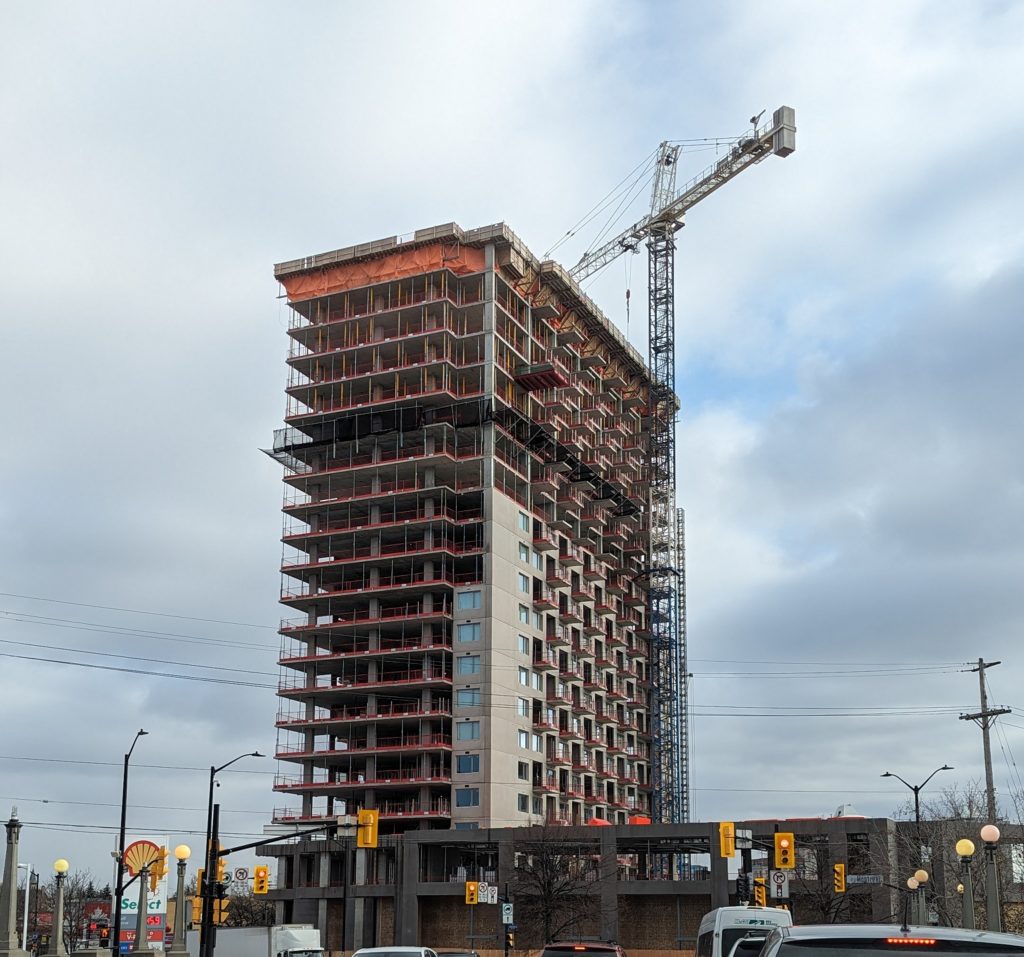As Canada’s capital city, Ottawa has long been a focal point for discussions on national policy, culture, and economics. In recent years, however, it’s the city’s housing market that has captured the attention of both local residents and national observers. The period leading up to 2023 has been marked by significant shifts, reflecting both the lingering impacts of the global pandemic and the unique economic pressures of the present day. From surging prices during the pandemic to the recent moderation in demand and prices, Ottawa’s housing market presents a complex puzzle of supply and demand, deeply intertwined with broader affordability issues.
This article delves into the various facets of Ottawa’s housing market as we navigate through 2023. We will explore the current state of housing in the city, examining the challenges and trends that have emerged post-pandemic. Our analysis will provide insights into the supply side dynamics, including the challenges in housing starts and new listings, and the demand trends, particularly focusing on buyer behavior and the growing concerns around housing affordability.

As we compare Ottawa’s market with other major Canadian cities, we aim to draw a comprehensive picture of its unique position. Finally, we will gaze into the crystal ball to offer predictions and discuss policy implications that could shape the future of housing in Ottawa. Whether you are a potential homebuyer, a real estate professional, or simply an interested observer, this article promises to provide a thorough understanding of Ottawa’s housing market in 2023.
Analyzing the Supply Side – Challenges and Projections
Supply Challenges in Ottawa’s Housing Market
In 2023, Ottawa’s housing market faces a notable supply-side challenge. The pandemic years saw a surge in demand and prices, but as the dust settles, the market is grappling with new realities. One of the primary concerns is the limited supply of new listings and housing starts. According to the Ottawa Real Estate Board (OREB), residential property sales declined 42% year-over-year in November, with a marked decrease in condominium sales, a segment often considered entry-level housing. This trend points to a larger issue within the housing market: a significant slowdown in the availability of new properties.
The supply shortage is further exacerbated by decreased housing construction activity. Canada Mortgage and Housing Corporation (CMHC) reported a 61% drop in housing starts in Ottawa from November 2021 to November 2022. This decline is not just a reflection of the post-pandemic adjustment but also indicates deeper structural issues in the housing construction sector, such as increased development fees and material and labor shortages.

Projections for 2023 and Beyond
Despite these challenges, there are projections of a rebound in the Ottawa housing market for 2023. The 2023 Canadian Housing Market Outlook Report from RE/MAX estimates a 4% increase in the average residential sale price in Ottawa for the year. This projection suggests a gradual recovery, but it remains tempered by the ongoing supply constraints.
The supply situation is a complex mix of economic factors and policy decisions. On one hand, there’s a need to boost housing construction to meet growing demand, especially in a city like Ottawa where government and technology sectors attract a steady influx of residents. On the other hand, developers face increasing costs and regulatory hurdles, slowing down the pace of new construction.
Addressing the Supply Shortage
To address these challenges, a multi-faceted approach is necessary. This includes policy measures to encourage housing construction, such as reducing development fees and streamlining approval processes. Additionally, innovative housing solutions, like multi-residential properties and tiny or coach home conversions, are expected to gain traction in the Ottawa market.
While the Ottawa housing market adjusts to post-pandemic realities, addressing the supply side challenges is crucial for a balanced and sustainable market. The year 2023 will likely be a pivotal one, with the potential for both setbacks and progress in meeting the city’s housing needs.
Demand Dynamics – Buyer Trends and Affordability Issues
Shifting Buyer Behavior in Ottawa

The Ottawa housing market, like many others across Canada, is witnessing a significant shift in buyer behavior. In 2023, the market is no longer characterized by the feverish demand seen during the pandemic. Instead, there’s a more cautious approach among buyers, influenced by several factors including economic uncertainty and the affordability crisis. The average sales price for residential-class properties in Ottawa showed a decline, indicating a moderation in buyer enthusiasm.
One notable trend is the impact on first-time homebuyers. The decline in condominium sales, traditionally a gateway for first-time buyers, highlights the challenges this group faces. They are increasingly finding themselves priced out of the market or struggling to meet the stringent requirements of mortgage stress tests. This scenario is forcing many potential buyers to either delay their purchase plans or consider less traditional pathways to homeownership.
Affordability Issues
Affordability remains a key concern in the Ottawa housing market. Despite the moderation in prices, the cost of homeownership is still high, exacerbated by rising interest rates. This environment has made it particularly difficult for middle-class families and first-time buyers to enter the market. The National Bank’s housing affordability monitor revealed that mortgage payments as a percentage of income have increased across Canada, effectively erasing gains made in affordability earlier in the year.
The rental market in Ottawa is not immune to these challenges. With the decrease in available and affordable housing units, the rental market has become increasingly competitive and expensive. This situation leaves those who cannot afford to buy with fewer options, thereby perpetuating the cycle of high demand and low supply in the housing market.
The Road Ahead
Looking forward, the Ottawa housing market is expected to continue adjusting to these new demand dynamics. While the market offers some opportunities, especially for buyers in a more balanced market environment, the challenges of affordability and accessibility remain prominent. The situation calls for concerted efforts from policymakers, developers, and financial institutions to address these issues and provide more viable options for potential homeowners in Ottawa.
Comparative Perspective – Ottawa vs. Other Canadian Cities
Ottawa in the Canadian Housing Context

Ottawa’s housing market, while sharing some common trends with other major Canadian cities, also presents unique characteristics. Unlike markets like Toronto or Vancouver, where housing prices have reached exorbitant levels, Ottawa’s market has been relatively more balanced, though it is not without its challenges. The average residential sale price in Ottawa, although experiencing a decline, remains significantly lower compared to cities like Vancouver, where the median home price is substantially higher.
Unique Challenges and Advantages
One of Ottawa’s unique challenges is its status as the nation’s capital, which influences its real estate dynamics. The city’s stable employment sector, primarily driven by government and tech jobs, attracts a steady stream of new residents, maintaining a consistent demand for housing. However, this demand is met with the issues of limited supply and higher development costs, making it difficult for the market to keep pace.
Conversely, Ottawa offers certain advantages. The city provides a more affordable alternative to the exorbitantly priced markets of Toronto and Vancouver. This affordability, coupled with a high quality of life, makes Ottawa an attractive option for those looking to enter the housing market without the financial stretch required in more expensive cities.
Comparative Market Dynamics
When compared to other cities, Ottawa’s housing market has shown resilience in maintaining a balance between supply and demand. While prices have risen, they have not skyrocketed at the same pace as in some other major cities. This balance is crucial in ensuring a sustainable real estate market that remains accessible to a broader segment of the population.
Ottawa’s housing market holds its own unique position within the broader Canadian real estate landscape. Its challenges and opportunities differ from those of other major cities, providing a distinct market scenario for buyers, sellers, and investors alike.
Future Outlook and Policy Implications
Predictions for Ottawa’s Housing Market

As we look towards the future of Ottawa’s housing market, several predictions emerge. While the market has reached a more balanced state, the challenges of supply and affordability are expected to persist. The trends observed in 2023, such as the moderation in demand and the slight decline in prices, may continue as the market further adjusts to post-pandemic realities. However, the anticipated increase in sales prices and unit sales suggests a gradual recovery and a potentially more robust market by the end of the year.
Policy Responses to Housing Challenges
Addressing the housing market challenges in Ottawa requires a comprehensive policy approach. The federal government’s initiatives, such as waiving the GST from new rental construction and the Housing Accelerator Fund, are steps in the right direction. However, more targeted measures may be needed specifically for markets like Ottawa. Policies focusing on increasing the supply of affordable housing, supporting first-time homebuyers, and ensuring a sustainable development process could be crucial in shaping a more accessible market.
Potential Solutions and Strategic Approaches
Solutions to Ottawa’s housing issues could include incentivizing new construction, particularly of affordable housing units, and streamlining the approval process for housing developments. Another approach could be enhancing support for first-time buyers, such as improving access to financing and offering targeted tax incentives. Additionally, fostering a collaborative environment among government, developers, and community groups could lead to more innovative and effective housing solutions.
The Role of Government and Private Sector
The government, both at the federal and municipal levels, plays a pivotal role in shaping the housing market through policies and regulations. At the same time, the private sector’s involvement is crucial in implementing these policies and driving the market forward. A synergistic approach, where policy and market forces align, could be the key to addressing the housing challenges in Ottawa effectively.
The future of Ottawa’s housing market presents both challenges and opportunities. While the immediate outlook suggests a period of adjustment and recovery, long-term solutions will require a combination of strategic policy interventions and market-driven initiatives. The goal should be to create a housing market in Ottawa that is not only vibrant and dynamic but also accessible and affordable for all segments of the population.

Navigating the Future of Ottawa’s Housing Market
As we reflect on the various aspects of Ottawa’s housing market in 2023, it’s clear that the city stands at a crossroads. The past few years have brought significant changes, shaped by global events, economic shifts, and local market dynamics. Now, as the market moves towards a new equilibrium, stakeholders from all sectors face the challenge of navigating this evolving landscape.
The key takeaway from our analysis is the delicate balance between supply and demand that defines Ottawa’s housing market. While there are signs of recovery and potential growth, the lingering issues of supply shortages and affordability constraints cannot be overlooked. These challenges necessitate thoughtful and proactive responses from policymakers, developers, and community leaders.
Looking ahead, the Ottawa housing market offers both challenges and opportunities. For potential homebuyers, it’s a market that requires careful consideration, balancing aspirations with affordability. For policymakers, it presents a complex puzzle that demands innovative solutions to ensure a sustainable and inclusive housing market. And for the real estate industry, it’s a landscape ripe with opportunities for growth and development, provided they align with the broader goals of community building and affordability.
In summary, Ottawa’s housing market in 2023 and beyond is not just about property transactions; it’s about building communities, fostering economic stability, and ensuring that the dream of homeownership remains attainable for all who call this vibrant city home. As we move forward, the decisions made today will shape the Ottawa of tomorrow, making it imperative that these decisions are guided by foresight, empathy, and a commitment to the greater good.
